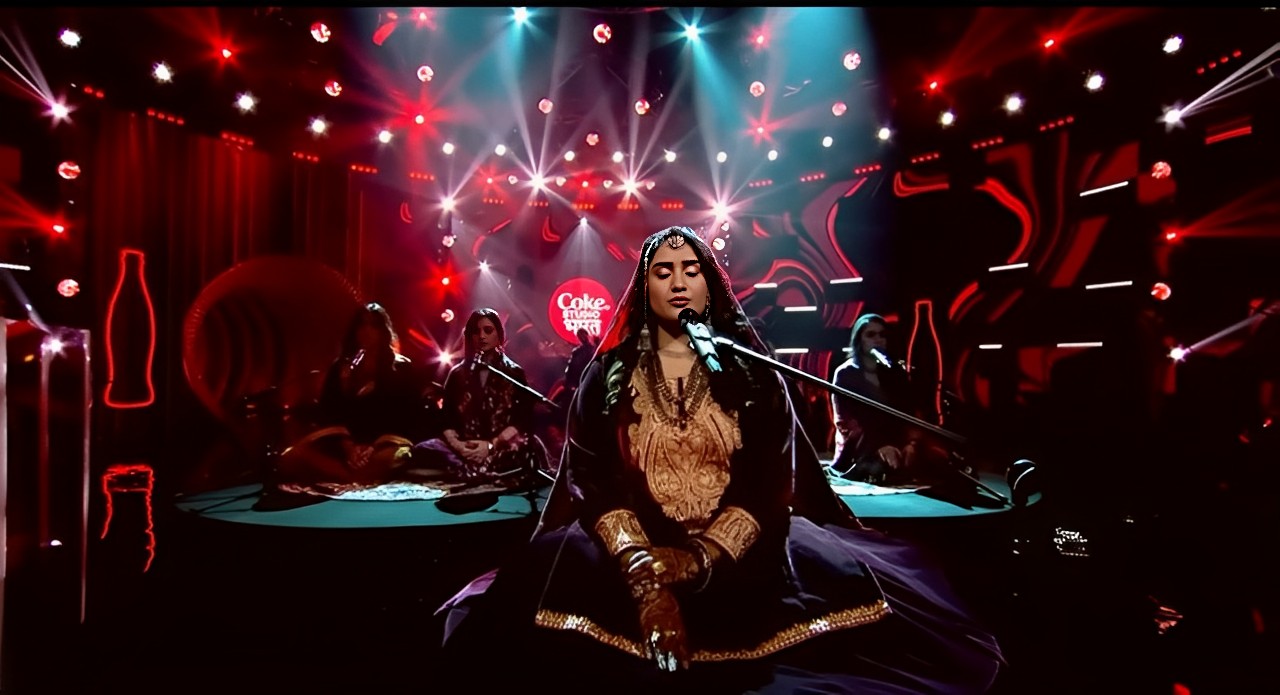by Hurmat Altaf
With a selfless heart, the father bestows all he possesses, yearning for nothing more than the radiant happiness of his beloved daughter, finding solace and fulfilment in her joy alone.

Literature, the exquisite tapestry of human expression, holds within its threads the essence of our existence. It is an endeavour to unravel the wonders that lie within each of us and encompasses all facets of society: social, cultural, economic, and political.
From the age of Chaucer, with its poetic grace and profound insights, to the contemporary era of post-modernism, literature has traversed the vast expanse of human experience. Each epoch has served as a reflection of its socio-cultural milieu, from the indomitable spirit of Tennyson’s Victorian era, encapsulated in the lines “…to strive, to seek, to find, and not to yield,” to the modern era of Beckett, where disillusionment resonates through the stark words, “Nothing to be done.”
Kashmir Melodies
Yet, the realm of literature extends beyond the written word; it encompasses all forms of artistic expression, be it spoken, sung, or imagined. In our Peeri Vaer, Kashmir, the land of intellectual luminaries like Lal Ded, Sheikh-ul-Alam, Habba Khatoon, Rehman Rahi, Dinanath Nadim, and many more, the rich tapestry of literature intertwines with melodies. Songs have served as poignant vehicles, conveying messages with melodious finesse.
However, amidst the tapestry of our contemporary society, a disheartening trend has emerged: the ostentation and extravagance that permeate weddings in Kashmir. The true essence of matrimony seems to have been lost, overshadowed by an unrelenting pursuit of grandeur. Rather than uplifting one another, we find ourselves ensnared in a race to outshine, perpetuated by the vices of greed, materialism, and jealousy ingrained within us.
A New Song
The trending song of the day, Kya Karie Korimol, has stormed the internet since its release. It has got too many eyeballs within just a blink of an eye as it highlights the most pious and loved relationship between a father and a daughter amid the plight of the father in marrying his beloved daughter.
The song beautifully portrays the initiation of a wedding ceremony with guests desperately waiting for the feast to be served, the essence of show off, followed by an alluring inclusion of Kashmiri folklore, which emotionally puts forth the microcosm of every society where a woman in reality does not possess any house that she can call home because, before marriage, it is being infused in her that someday perhaps she has to go to her own home, which is her in-laws, and after marriage, her identity loses somewhere and she is not able to relate to either of the houses in any way.
The metaphor of a postman has been used in depicting the aforesaid plight a woman has to go through because she only possesses the courage to bid farewell to the sanctuary of her home, with bittersweet nostalgia clinging to cherished memories. The lyrics go like, Ghar kaha hai dulhano se puch na…/ Dhakia badal gaya chitiyo ko kya pata/ Dulhano se puch na kon sa hai ghar tera… henceforth, dhakia (postman) symbolising the house and chitiya (letter) symbolising the woman.
The wanvun (chorus) that follows after this unveils the enchanting tapestry of rich Kashmiri folklore, woven through the ages with whispered tales of mystical beings, timeless traditions, and captivating legends that continue to resonate in the hearts of the Kashmiri people. It further reflects the prayer of a father for his daughter’s happiness; all that every father actually wants for his daughter is to be respected, understood, and treated with the same care and intentions she was treated in her father’s house: Hawale karmakh peer peeranas/ Sui rachi chaenis shur panas…/Bakhtawari pooshne…
A Sensitive Issue
Within the mesmerizing rhythm of the song, the repeated verse Kya Karie Korimol/Naras diya nari mol (What can a bride’s father do as such/Should he be trading his own life as such) paints a vivid picture of the universal plight faced by fathers in Kashmir today. In the face of extravagant demands, they strive to make every wish readily available, knowing deep down that the true measure of their daughter’s happiness lies in these provisions, despite the irony it entails. These heartfelt lyrics resonate with common people, capturing the emotional essence of a father’s unwavering love and his unwavering commitment to his daughter’s joy.

The father-daughter relationship the song explores is indeed illustrious. Likewise, when a daughter is born, it is indeed a blessing, but our society is such that it is considered nothing more than an act of disgrace, except for the parents. Everyone out there is taking deep sighs, but the way a parent dedicates their whole life selflessly towards their children, in this case, a father towards his daughter, from fulfilling her desires while crushing his own to marrying her with every penny saved in his life, is something we cannot match with anything. With a selfless heart, he bestows all he possesses, yearning for nothing more than the radiant happiness of his beloved daughter, finding solace and fulfilment in her joy alone.
Thus, in a world consumed by lavishness, the bond between a father and his daughter remains a steadfast beacon of love and sacrifice, transcending material extravagances to embrace the timeless treasures of affection, guidance, and unwavering support. Moreover, in a society plagued by the allure of extravagant weddings, we should collectively make provisions towards making a better society by eliminating the lavishness we get to see in marriages today in Kashmir!
(The author is pursuing BA Honours in English from Cluster University Srinagar, Kashmir. Ideas are personal.)















